Posted on 10/28/2022
.jpeg)
If you're lucky enough to enjoy the occasional maple donut (or, let's be honest, if you're like me and love them), then you know that there's nothing quite like the smell of fresh maple syrup. But you may not know that this sweet scent can be a warning sign for your car. If you notice a maple syrup-like smell coming from your car, it's most likely due to a coolant leak. Coolant is an important part of your car's engine and helps keep it running at the right temperature. When there's a leak, the coolant can mix with other fluids and produce a sweet scent. While a small leak might not seem like a big deal, getting it fixed as soon as possible is important. If left unrepaired, a coolant leak can lead to serious engine damage. If your car smells like maple syrup, this is a sign that the coolant is leaking. Other Smells to Watch Out If you notice an unusual smell coming from your car, it's important to take action immediately. The source of the smell could ... read more
Posted on 9/29/2022
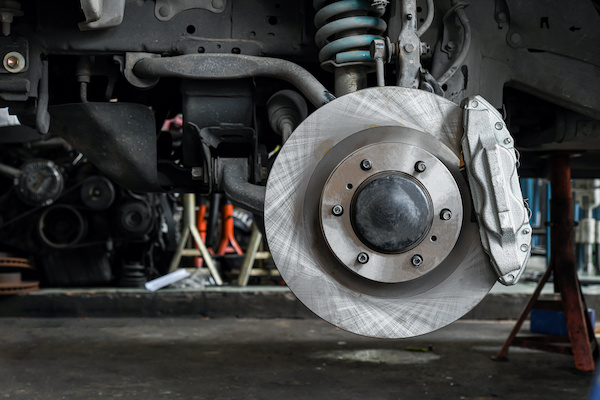
The difference between brake pads and brake shoes is an important one. They both serve similar functions, but their structures and locations are distinct. What Are Brake Pads? Cars have either disc brake or drum brake systems. Brake pads belong to a disc brake system. What this means is that they get squeezed together against a rotor disc, generating enough friction to stop the car. They get squeezed together by what's called a caliper. Brake calipers are the intermediary devices that slow the car's wheels, therefore generating the proper amount of friction. Which Types of Cars Have Brake Pads? Brake pads are the go-to mechanism for front-wheel cars, though are becoming less common as modern cars emerge on the market. What Are Brake Shoes? Brake shoes are part of a fundamentally different car anatomy system, called a drum brake system. The shoes are altogether more efficient, shaped like crescents with material on each side that is designed to generate the proper amount o ... read more
Posted on 8/30/2022
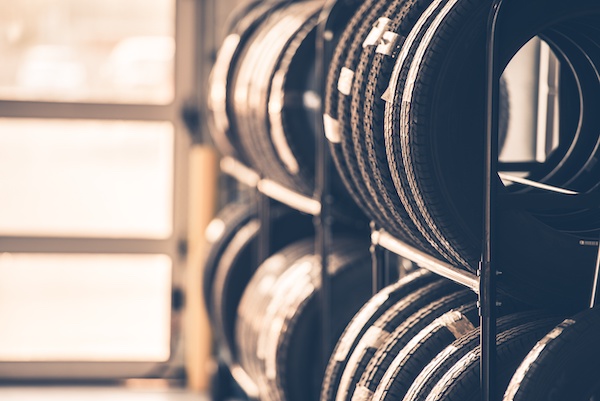
Tires require regular maintenance more than any other car component. Because they are the only part that touches the road, they need to be monitored for correct pressure, even wear, and tread depth. And eventually, there will come a day when you need to replace them. Tire replacements can be costly, which is why drivers do everything they can to get as much wear out of their tires as possible. However, you should not cheap out on neglecting to replace your tires. Your safety ultimately comes first, and your tires need to be in good condition to do so. Read on to learn more about things to check to tell if you need new tires. Tread Depth - The most important indicator that it is time to change your tires is low tread depth. The grooves on your tires dictate how well they are able to grip and hug the road. When they wear down significantly, it is easy for your tires to slip and slide. Therefore, you should change your tires when they approach 2/32 of an inch. You can also do th ... read more
Posted on 7/26/2022
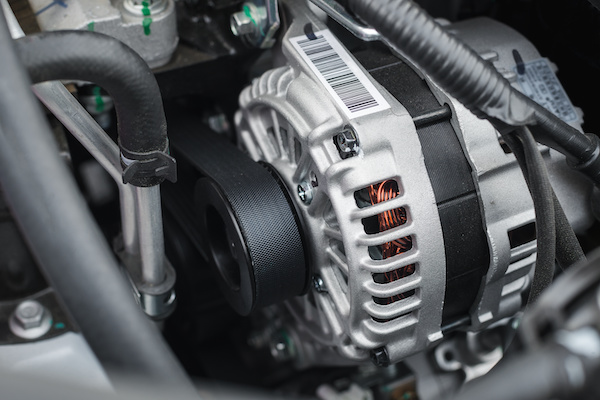
A car's alternator is one of the most underrated devices in the vehicle because the battery takes most of its credit. Most people imagine that because the car's battery helps ignite the vehicle, it is one of the most crucial elements of the car's electric system. However, they couldn't be further from the truth because an alternator immensely powers all the vehicle's electrical system apart from charging the car battery while you drive. There is, therefore, danger in driving a vehicle with a faulty alternator because it will leave you stranded over a flat battery or dim your lights while you drive at night. If you are unsure about the state of your car's alternator, the following are telltale signs of a faulty alternator: Weak battery. The primary role of an alternator is to recharge the car's battery while driving. It converts mechanical energy from the engine's rotating pulleys into electrical energy that charges the battery. A faulty alternator woul ... read more
Posted on 6/22/2022
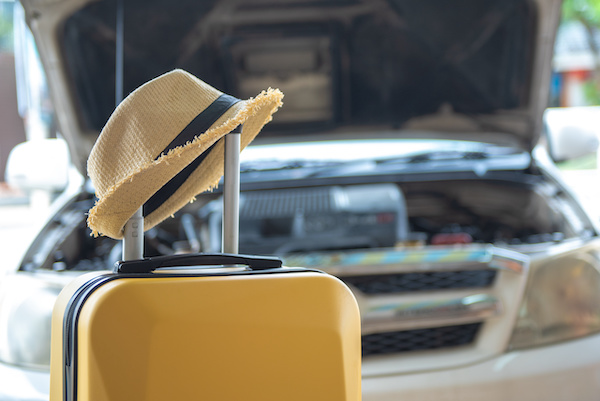
If you are a fan of summer road trips or simply enjoy getting sun-drenched in the summer, you may consider putting your car first. Proper car maintenance ahead of the summer's high temperatures and surprise rain showers is necessary to ensure your car is safe on the road. Follow these tips to avoid any unnecessary breakdowns this summer: Monitor Tire Pressure When exposed to high levels of heat, vehicle tires can expand. To prevent wear and tear on your tires, it is important that you make adjustments to your tires. You should follow your automaker’s recommendations. Top Off On Fluids Your car runs with various fluids, including the power steering fluid, transmission fluid, windshield wiper fluid, and coolant. Make sure these are topped off, clean, and not leaking. Changing your Oil and Oil Filter Additionally, regularly inspecting your engine's oil level is a good idea since your engine will be running hot. If it has been a while since your last oil service, we rec ... read more
Posted on 5/24/2022

Nothing makes a road trip fly by faster and more fun than a sing-along session. Whether you are jamming out to tunes on your own or with the entire car, it's an indescribable feeling. Below are some of our favorites: All-Time Favorites “On the Road Again” by Willie Nelson “Take Me Home, Country Roads” by John Denver “Little Red Corvette” by Prince “Take It Easy” by the Eagles “Born to Be Wild” by Steppenwolf “Sweet Home Alabama” by Lynyrd Skynyrd "Enter Sandman" by Metallica 90s Favorites "Wannabe" by Spice Girls "Say My Name" by Destiny's Child "No Scrubs" by TLC "California Love" by Tupac "Livin' La Vida Loca" by Ricky Martin " … Baby One More Time" by Britney Spears Modern Hits “A Thousand Miles” by Vanessa Carlton “Party in the U.S.A.” by Miley Cyrus “Levitating” by ... read more
Posted on 4/27/2022
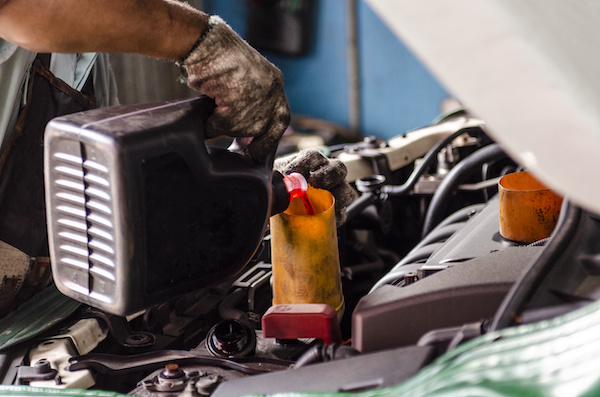
When it comes to vehicle maintenance, it can be difficult to keep track of all the different fluids you may need to change. But regular maintenance can save you a lot of money, and a lot of headaches, down the road. So what are the different fluids you need to change? Engine Oil Your engine's oil is one of the most important fluids in your vehicle. It keeps all the moving parts well lubricated and prevents excessive wear and tear. You should generally get it changed every 5000 miles, or every 6 months, whichever comes first. Although you'll want to monitor your oil levels at least once a month to check for leaks. Engine Coolant Your engine's coolant is designed to help keep an even temperature throughout your engine. Whether it's hot out, or cold out. You should generally check your levels twice a year, once before winter, and once before summer. When you get it changed will depend on two things, your vehicle, and the fluid you use. But a rule of thumb is about ever ... read more
Posted on 3/24/2022
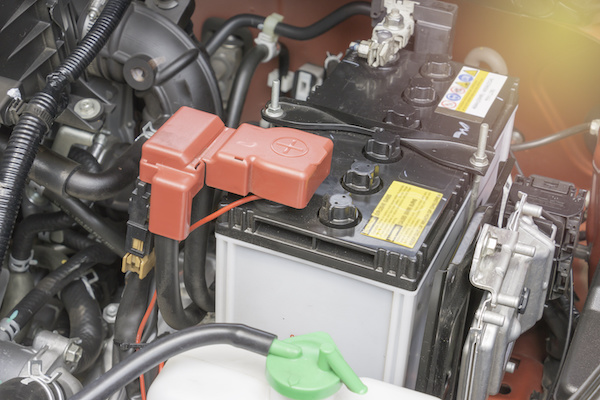
Batteries provide power all throughout your car. Without it, your engine will not start, and all your electrical power functions will fail. Though car batteries are very durable, they can break down quicker in certain conditions like heat. To ensure your battery lasts you for years to come, there are certain things you can do to protect the life of your battery. Limit Short Car Rides A quick trip to the store may not be as good as you thought. Short rides prevent your battery from fully charging. As a result, it can negatively affect your battery's long-term performance. It is better for you to drive for longer periods of time and make sure you turn on the ignition every once in a while if you're not driving it for an extended period. Clean and Secure the Battery Regular at-home inspections of your battery are highly encouraged! At the very least, you should check to see if it has any signs of corrosion. If any white, blue, or green gunk is covering the connection points, p ... read more
Posted on 2/25/2022
.jpeg)
Spark plugs play an integral role in the internal combustion process of your vehicle. Therefore, without them, your engine will not be able to produce power to move your car. Spark plugs are responsible for igniting the combustion chamber where the air and fuel mixture sit. And similar to most of your other car parts, they require routine service and replacement over time. Your spark plugs should be clean and free of any damages to achieve smooth and seamless engine operation. Dirty or faulty spark plugs can majorly impact your engine's running ability. An engine spark plug can go bad by getting covered with fuel, oil, and carbon. Spark plugs can also blister from exposure to high heat. Symptoms of a Bad or Failing Spark Plugs Over time, your spark plugs will naturally wear out. Below are some of the common signs that indicate you need to replace them soon: Engine Misfire - Faulty spark plugs often lead to engine misfires as they cannot completely ignite the fue ... read more
Posted on 1/31/2022

When should you use the emergency brake? Both new and experienced drivers often have this same question. Today, we will set the record straight and explain how and when to use your e-brake properly. The emergency brake, also known as a parking brake, e-brake, or handbrake, works separately from the brakes that often get serviced at the auto repair shop. It was intentionally made separate to serve as a backup brake if your primary/service brakes fail. Your service brakes are usually a hydraulic system. In contrast, the e-brake is engineered to hold your automobile in place. Therefore, it's recommended you use it when parking. When to Use the Emergency Brake Of course, you should always engage the emergency brake whenever your brakes fail. However, a misconception stems from the name 'emergency brake' because most people assume that you should only use it in emergencies. That is not the case; You should be using your emergency brake every time you park. It doesn ... read more